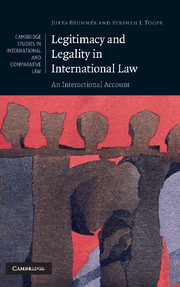4 - Climate change
building a global legal regime
Published online by Cambridge University Press: 05 July 2013
Summary
One very simple truth about Global Warming is this, that it will spare nobody, however rich, mighty and powerful we think we are. … Mr Tony Blair, the Prime Minister of the UK once said that without proper action now, the average global temperatures would rise by 2 degrees Celsius. Scientists estimate that the subsequent rise in the sea level would be enough to swamp a large proportion of Bangladesh in 30/40 years time. It would be a serious catastrophe for my country and for the whole region if much of the land in Bangladesh disappears under the sea. I become frightened to think that my grandchildren (when I touch them) will have no place to live on this planet earth. I really want to be sure that my grandchildren, and their children after them, will be able to enjoy the beauty of my country that I have enjoyed, and be able to have enough land to live, and enough land for food.
Michael S. Baroi, Anglican Bishop of BangladeshIntroduction
For some observers, climate change is the single most important public policy challenge of our time. But describing the ‘problem’ is not actually an easy matter. It is dizzying in its complexity, daunting in its implications, and multifaceted in a way that eludes easy categorization. Beginning with the environmental dimension, global warming is a problem of unprecedented scale. It is planetary in scope and inter-generational in its implications. Even more importantly, because climate change implicates virtually all production and consumption processes, addressing it is about nothing less than changing the way we do everything that we do, everywhere in the world. Climate change, then, is also a classic collective action problem. It can only be solved if all states, or at least the major greenhouse gas emitters, cooperate.
These difficulties are compounded by the fact that far-reaching decisions must be made under conditions of scientific uncertainty. While both the phenomenon of human-induced climate change and its dangerous potential are now beyond doubt, that was not always the case. On other issues, such as the speed and severity of climatic change, some debate continues. Not surprisingly, therefore, global warming is also an intractable political problem. How does one get states and political leaders to prioritize the issue, nationally and internationally?
- Type
- Chapter
- Information
- Legitimacy and Legality in International LawAn Interactional Account, pp. 126 - 219Publisher: Cambridge University PressPrint publication year: 2010
- 2
- Cited by



